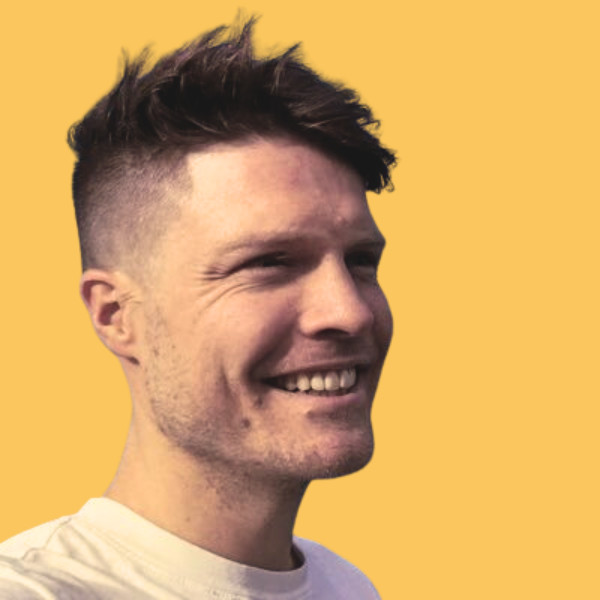Acquired podcast interviews Zuckerberg in San Francisco
Guests included Mark Zuckerberg (Facebook), Daniel Ek (Spotify), Emily Chang (Bloomberg)

Justin Jackson
On September 10, 2024, the Acquired podcast, hosted by Ben Gilbert and David Rosenthal, achieved a milestone that few independent podcasters could dream of: they filled San Francisco's Chase Center with over 6,000 fans for a live recording.

Even more impressive was their lineup for the evening: Mark Zuckerberg, founder of Facebook, Daniel Ek, founder of Spotify, and journalist Emily Chang all joined them on stage.

The Transistor team and I flew to San Francisco to experience the event live, which was electric. We're all big fans of Acquired, which we host, and we wanted to be there for Ben and David's big day.

Initial Impressions
We arrived at Chase Center early, and the place was buzzing. I was excited to see the stage setup, the jumbotrons, and the size of the place. Soon, thousands of fans filed in until the seats were full. Looking around, it was surreal to see all of these Acquired listeners in one place.
The lights dimmed, and Ben Gilbert and David Rosenthal entered the arena to the podcast's famous theme song, "Who Got the Truth?", performed live by Mike Taylor and his band.
Daniel Ek from Spotify
The first surprise of the evening was that Daniel Ek, founder and CEO of Spotify, had flown into be their first guest. Ben brought him on stage, saying Ek was a "big Acquired listener, gets what we're all about, and is a world expert on podcasting."

The three of them discussed Acquired's growth over the years. Since its 2015 launch, the show had consistently doubled it's listenership every year.

Ek then revealed some Spotify-specific data: Acquired listeners had consumed over 5.2 million hours of content on the platform since 2019, with a tripling of listenership in the past year alone. He highlighted the show's international reach, with significant growth in Mexico, Hong Kong, Israel, and Singapore.
The conversation with Ek also touched on Spotify's journey in the podcasting space. "When we launched, it was viewed that you needed different apps for podcasting and music," Ek said, "the contrarian thing we did was to [combine them in one app]. For us, it's just listening. It wasn't like our music listeners weren't listening to podcasts, so why not use this experience and recommend other great stuff? And we went from there."
There was also a conversation around Spotify's product development philosophy. Probably Ek's most circulated quote was:
Talk is cheap. And I mean that as a virtue. Building is expensive.
Daniel's point that Spotify doesn't always build things the fastest, but that they take the time to be thoughtful around what they build. They're deliberately slowing down and making fewer, but bigger bets.
It made me think about how our company could be more strategic with our resources. Building stuff is expensive! If we talk, debate, and explore ideas before committing to building new features, we can:
Minimize wasted effort on ideas that might not push the business forward
Make sure the team is aligned around our priorities
Increase our chances of building truly impactful features
Adopting this approach results in building fewer things, but the things we do build could have a bigger impact on what we want from the business.
Journalist Emily Chang
The evening continued with Bloomberg journalist Emily Chang taking the stage to interview Ben and David. Chang's segment focused on some of the hosts' past predictions, particularly those they may have gotten wrong.

One standout moment was their reflection on grading YouTube in 2016 when they gave it a C and C- respectively. "What grade would you give them today?" Chang asked.
"Oh, A+," David replied emphatically.
Mark Zuckerberg
The featured guest for the night was Mark Zuckerberg, CEO of Meta (Facebook).
As reported by the New York Times, Zuckerberg was much more comfortable on the Acquired stage than I'd ever seen him before. He spoke for nearly an hour and a half, covering topics ranging from artificial intelligence to his early moments in Silicon Valley.

Many of the people in attendance commented on his custom-made graphic black-and-white T-shirt. It featured Greek words that, when translated, read: "Learning through suffering."
Zuckerberg reflected on the challenges Meta has faced over time, including the difficult period in the early 2010s when Facebook had to pivot to mobile. He also shared his thoughts on the future of social technology and AI.
Looking forward, Mark commented on the “difference between building good things and awesome things. Over the next 15 years, I want to build more things that are awesome (AI, Reality Labs)."
His parting advice to new startup founders was, "Learn from other people’s mistakes and wins, but do your own thing."
Conclusions and reflections
This live show at Chase Center was a massive milestone for Ben and David and a testament to the power of independent media. With a team of just three members, Acquired has built an audience of over 800,000 listeners.
The event held personal significance for me and the Transistor team as well. During the show, my colleague Helen observed: "Look around. We've likely served Acquired audio files to everyone in this arena." It was a powerful moment, seeing the physical embodiment of the podcast listeners who rely on our servers to access audio for their favorite shows.

How to start a podcast
This guide gives you the steps to plan, launch, promote, and monetize a successful podcast. Learn how to publish on Spotify, Apple Podcasts,

Justin Jackson
Best way to publish an audio and video podcast at the same time
Distribute your audio podcast to Apple Podcasts and your video podcast to YouTube and Spotify

Justin Jackson
What is podcast hosting and why do I need it?
Besides a microphone, and audio editing software, what do you need to make a podcast? Well, just like you need "website hosting" for your we
